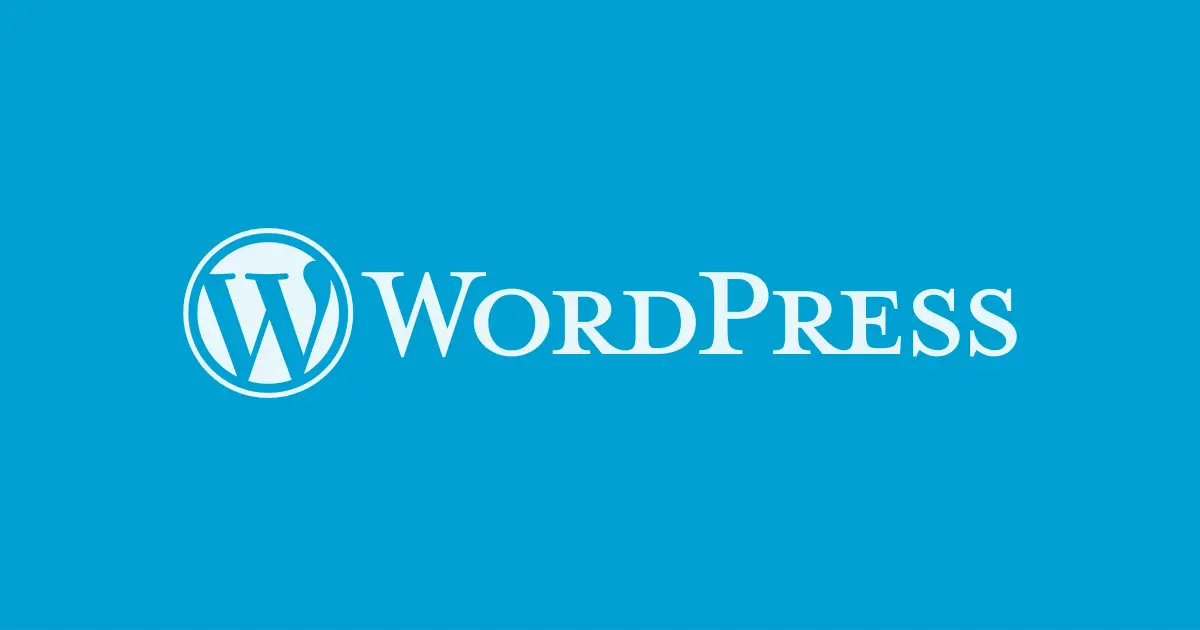What is WordPress? WordPress is a free, open-source content management system (CMS) based on PHP and MySQL. It is used to create and manage websites, blogs, and other types of online content. WordPress is the most popular CMS in the world, and it is used by millions of websites.
WordPress offers a wide range of features, including a variety of templates, plug-ins, and themes, making it easy for users to create and customize their own websites without needing to know how to code. Additionally, WordPress is also highly customizable and extensible, which makes it an ideal platform for building complex websites, such as e-commerce stores and forums.

Overview of WordPress
WordPress is a free and open-source content management system (CMS) that is widely used for creating and managing websites. It is based on PHP and MySQL and is known for its ease of use and customization options. WordPress is used by individuals, small businesses, and large organizations to create websites of all types, including blogs, e-commerce sites, and portfolios.
Importance of WordPress in website development
WordPress is important in website development because it allows users with little to no coding experience to create and manage a website with ease. It offers a wide range of customizable templates and plugins that can be used to add functionality to a site, such as contact forms, social media integration, and e-commerce capabilities. Additionally, WordPress is SEO-friendly and has a large community of users and developers who provide support and resources. This makes it a popular choice for website development.
History of WordPress
Early development
WordPress was first released in 2003 by Matt Mullenweg and Mike Little as a basic blogging platform. The name WordPress was suggested by Christine Selleck Tremoulet, a friend of Mullenweg. The first version of WordPress was released on May 27, 2003, and it was built on a fork of b2/cafelog which was an open-source blogging software written in PHP and MySQL.
Evolution over time
WordPress has evolved over the years, with new versions being released regularly. Version 1.0 was released in January 2004, and version 2.0 was released in December 2005 which included new features like built-in support for tagging and permalinks.
WordPress 2.5 was released in March 2008, which included new features like built-in support for tagging, an image uploader, and support for widgets.
WordPress 3.0 was released on June 17, 2010, which included new features like custom post types, custom taxonomies, and the new Twenty Ten theme.
WordPress 3.4 was released on June 13, 2012, which included new features like theme customizer, and HTML5 support.
WordPress 4.0 was released on September 4, 2014, which included new features like a new media library and improved theme customizer.
WordPress 4.9 was released on November 14, 2017, which included new features like the WordPress code editor, and the ability to schedule design changes.
WordPress 5.0 was released on December 6, 2018, which included a new editor called Gutenberg which was designed to make it easier for users to create and organize content.
Current state of WordPress
Today, WordPress is the most popular content management system in the world, powering over 40% of all websites on the internet. It is available in multiple languages, and has a large community of users and developers who provide support and resources. The latest version of WordPress, WordPress 5.7, was released in April 2021, with new features such as block patterns, improved theme templates, and better performance. WordPress continues to evolve and improve, with new updates and features being released regularly.
III. Features of WordPress
A. Content Management:
- WordPress allows users to easily create, edit, and manage website content through a user-friendly interface.
- It supports a wide variety of media types, including text, images, videos, and audio.
- Users can organize content using categories and tags, and schedule content to be published at a later date.
B. Plugins and Themes:
- WordPress has a vast library of plugins and themes that can be used to extend the functionality of a website and customize its design.
- Plugins add specific features to a website, such as forms, social media integration, and e-commerce functionality.
- Themes control the overall design and layout of a website, and can be easily installed and customized to change the appearance of a website.
C. SEO Optimization:
- WordPress has built-in features that make it easy to optimize a website for search engines, such as the ability to edit meta tags and create XML sitemaps.
- There are also many SEO-focused plugins available, such as Yoast SEO, that can help users optimize their website for search engines.
D. Security and Backup Options:
- WordPress has a number of built-in security features, such as password hashing and user authentication, to help protect a website from malicious attacks.
- Users can also install security plugins, such as Wordfence, to further enhance the security of their website.
- In addition, users can schedule regular backups of their website to ensure that their data is safe and can be restored in case of an emergency.
IV. Advantages of using WordPress
A. Cost-effective:
- WordPress is an open-source platform, which means that it is free to use and modify.
- Hosting and domain costs are also relatively low, making it a cost-effective option for creating and maintaining a website.
B. User-friendly:
- WordPress has a user-friendly interface that makes it easy for users to create, edit, and manage their website.
- Even those with limited technical skills can use WordPress to create a professional-looking website.
C. Flexibility and Scalability:
- WordPress can be used for a wide variety of website types, such as blogs, e-commerce sites, and portfolios.
- It also allows users to easily add new features and functionality to their website through the use of plugins and themes.
D. Large Community Support:
- WordPress has a large and active community of users and developers, which means that there is a wealth of knowledge and resources available to help users troubleshoot problems and improve their website.
- There are also many tutorials, forums, and online communities where users can seek help and advice.
- This community support also means that WordPress is regularly updated with new features and security enhancements to help keep your website safe and running smoothly.
V. Use cases of WordPress
A. Blogs:
- WordPress is a popular choice for bloggers due to its user-friendly interface and built-in support for creating and managing blog posts.
- It also has many plugins and themes available specifically designed for blogs, which can be used to add features such as social media integration and email subscriptions.
B. e-Commerce Websites:
- WordPress can also be used to create e-commerce websites, thanks to its built-in support for products and inventory management, and the availability of e-commerce plugins such as WooCommerce.
- These plugins add features such as shopping cart functionality, product listings, and payment gateway integration.
C. Portfolios:
- WordPress can be used to create professional online portfolios to showcase work, whether it be art, photography, or design.
- There are many portfolio-specific themes and plugins available to help users create an attractive and easy to navigate portfolio website
D. Business websites:
- WordPress is also a popular choice for business websites, as it offers a wide range of features and flexibility.
- It can be used to create a website that includes features such as contact forms, team member listings, and services pages.
- Many business-specific themes and plugins are available that can be used to create professional-looking websites with all the features that a business needs.
In summary, WordPress is a versatile platform that can be used to create a wide variety of websites, from blogs and portfolios to e-commerce sites and business websites. Its user-friendly interface, cost-effectiveness, flexibility, scalability, and large community support makes it a popular choice for website development.
VI. Challenges and limitations of WordPress
A. Limited Customizability:
- While WordPress allows users to customize the appearance and functionality of their website through the use of themes and plugins, there are limitations to how much customization can be done.
- Some themes and plugins may not offer all the options that a user is looking for, and there may be limitations to how much code can be modified without breaking the website.
B. Vulnerability to Hacking:
- As WordPress is one of the most popular website platforms, it is also a common target for hackers.
- Websites built on WordPress are vulnerable to hacking and malware attacks, which can damage the website, steal sensitive information, or compromise the security of visitors.
C. Performance Issues:
- WordPress websites may experience performance issues, such as slow page loading times, if they are not optimized properly or have too many heavy plugins installed.
- These performance issues can be frustrating for visitors and can negatively impact search engine rankings.
D. Limited Control Over Hosting:
- While users have the option to host their own website, many choose to use a managed hosting provider.
- By choosing a managed hosting, users have limited control over the server and hosting environment, which can limit their ability to make certain customizations and optimizations to their website.
In summary, while WordPress is a powerful platform with a wide range of features, it also has its limitations. These include limited customizability, vulnerability to hacking, performance issues and limited control over hosting. Users should be aware of these limitations and take steps to mitigate them, such as using a security plugin, optimizing their website and choosing a suitable hosting provider.
VII. Conclusion
A. Summary of the Benefits and Limitations of WordPress:
- WordPress is a popular, user-friendly, and cost-effective platform for creating and managing websites.
- It offers a wide range of features, including content management, plugins, and themes, that can be used to extend the functionality and customize the design of a website.
- It also has a large community support that provides knowledge, resources, and updates.
- However, WordPress also has its limitations, including limited customizability, vulnerability to hacking, performance issues, and limited control over hosting.
B. Future of WordPress in Website Development:
- WordPress is constantly evolving and improving, with new features and updates being released regularly.
- It’s expected to continue growing in popularity as a website development platform, as more businesses and individuals realize its potential and benefits.
- In addition, the integration of new technologies such as AI, VR, and AR with WordPress is expected to further improve the user experience and make it easier to create more advanced websites.
C. Recommendations for Using WordPress Effectively:
- To effectively use WordPress, it’s recommended to stay up-to-date with the latest versions and security updates.
- To mitigate the limitations of WordPress, users should use security plugins, optimize their website, and choose a suitable hosting provider.
- To take full advantage of the features and capabilities of WordPress, users should familiarize themselves with the platform and its community resources.
- Users should also consider the specific needs and goals of their website and select the appropriate themes, plugins and customization options that meet those needs.
In conclusion, WordPress is a powerful and versatile platform for creating and managing websites, but it also has its limitations. By understanding the benefits and limitations of WordPress, staying up-to-date with the latest versions, and taking the necessary steps to optimize and secure the website, users can effectively use WordPress to create a professional, effective and successful website.
